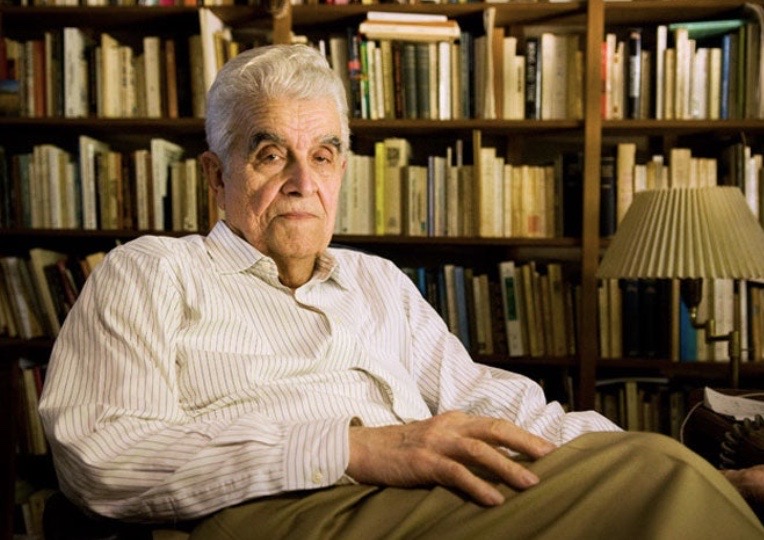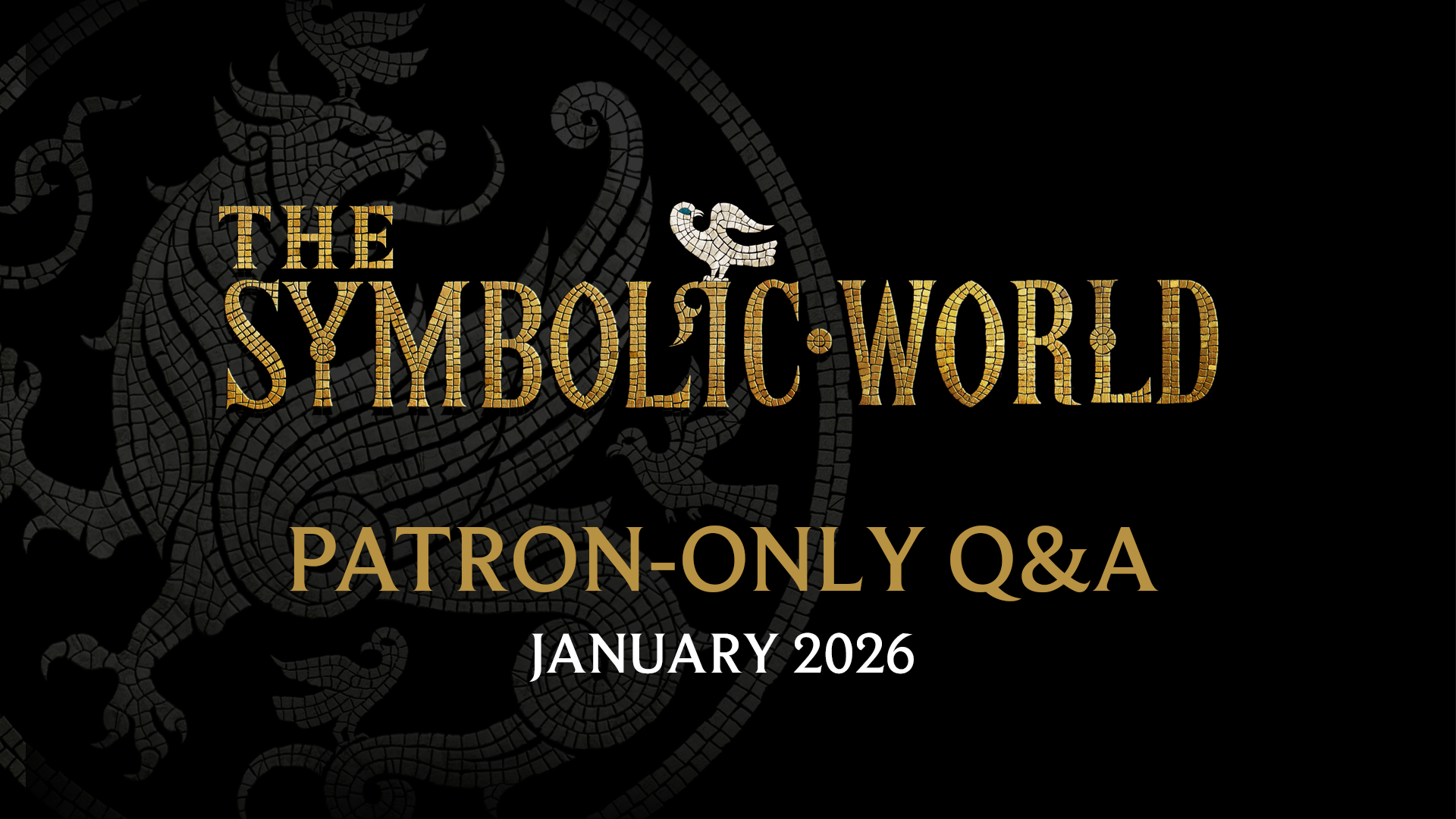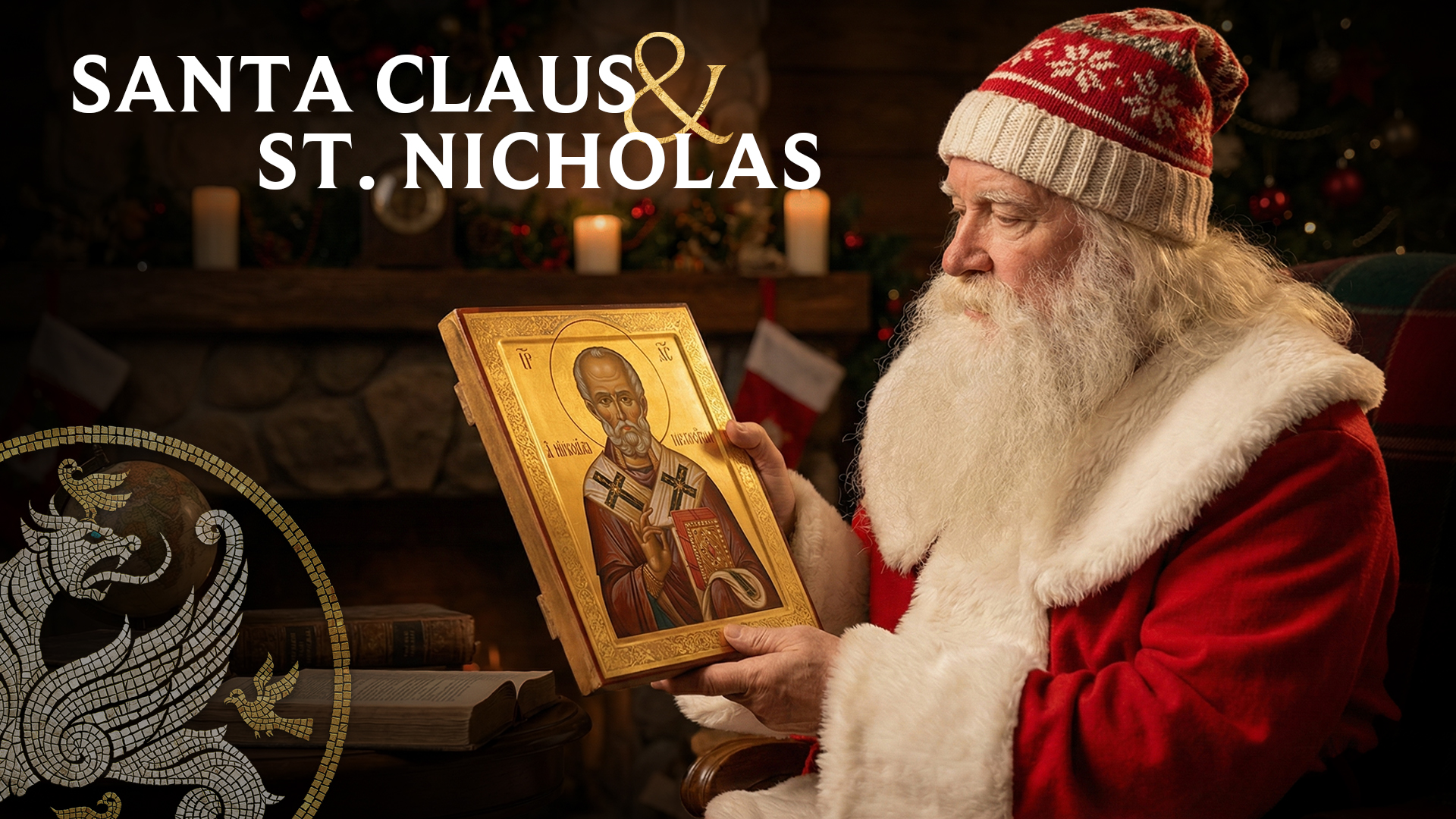Possibility, Intelligibility, and the Incarnation

In my last post, I brought up the idea that the Logos can act through our intellects1. When we meditate on the Incarnation for example, we are shaped by it, and this will in turn shape the world through our actions. In this post, I want to use this idea to make a case for the intelligibility of the Incarnation, staying as close as possible to the kind of non-reductive naturalism that John Vervaeke has defended in this corner of the internet. My hope is to move forward the discussion on miracles that John and I had with Paul Vanderklay a few months ago2.
Ultimately, I will explain that while the Incarnation is something qualitatively different from what the naturalist holds (as John rightly pointed out in that discussion), it is continuous with it and does not break the intelligibility behind his worldview. Think of the Incarnation as a phase transition, where an accumulation of differences in degree ends up reorganizing into a difference in kind. Think of it as the birth of a new kind of life.
Let me start with the following two claims:
1) The Logos (a.k.a. the Ground of Intelligibility) constrains potential
2) The Logos can constrain potential through human intellects
I think that John would grant those two statements. He has explicitly granted the first one several occasions 3. To summarize, the idea is that the emergence we see in nature does not happen willy-nilly. There are intelligible constraints that shape it. The laws of fundamental physics, for example, constrain the emergence of fundamental particles from the potential at the bottom layer of physics. Similarly, the laws of chemistry constrain the emergence of molecules from atoms, which are still full of potential. Higher up, cognitive science aims at discovering laws that constrain the emergence of consciousness. More fundamentally, mathematical truths constrain all of nature. And at least as fundamentally, beneath all those sets of constraints, there is a Ground of Intelligibility which gives rise to them. In other words, there is a Logos which constrains the potential within nature.
And I think John would grant my second claim as well. It seems fairly uncontroversial, for example, that when an engineer does mathematics to create some new technology, this piece of mathematics ends up shaping the world. It constrains potential not only in the mind of the engineer, but also in the actions of the engineer and in their outcomes. In this way, the fundamental constraints on intelligibility end up shaping the world through a human.
You could also take any example of when we engage in abstract and artistic thought, or, to use symbolic language familiar with readers of this blog, anytime we mediate between heaven and earth. In those moments where we inform the earth with abstract heavenly patterns, the Logos who creates the heavens shapes the earth through us.
Now, the discussion between John and I would start getting more contentious regarding the magnitude of these actions that the Logos carries out through us. I would claim the following:
3) The Logos can irreducibly constrain potential through human intellects
In a classical mathematical Platonist fashion, I hold that the engineer of the example above can enter into a non-reducible relationship with mathematical objects. The causal powers he has when in the mathematical realm escape him by himself. It’s especially clear when he’s working on something original. What he does is make himself potential for mathematical truths to inform him. He goes into the abstract realm of mathematics, asks questions, and waits for answers. You cannot reduce what he receives to his own causal powers. Think of Noah receiving the plans for the ark, or Moses receiving the plan of the Tabernacle.
The same would go anytime we engage in genuinely abstract thought and we reach conclusions we couldn’t have reached by our own causal powers. Mystical experiences, artistic production or dia-logos spring to mind as other possible examples.
Also, notice that this can happen without any encroachment upon human freedom. The engineer is quite happy that his potential is constrained by the Logos for the benefit of his work for instance. Think of this much more as a cooperation and a dialogue than as a top-down tyranny of the Logos onto human potential.
What I’m trying to suggest here, more generally, is that while the Logos constrains emergence from potential very slowly and bottom-up in evolution until you get to humans, something changes when you reach this point. With human intellects, the Logos has a new and more direct kind of place to shape possibility. The abstract eternal truths that have been slowly and steadily shaping nature since the Big Bang can now insert themselves much more abruptly in space and time through the potential of human intellects. “And the Lord God formed man of the dust of the ground, and breathed into his nostrils the breath of life.4”
The French philosopher Henri Bergson had a nice way of framing evolution precisely as building up larger and larger such reservoirs of possibility:
… the role of life is to insert some indetermination into matter. Indeterminate, i.e. unforeseeable, are the forms it creates in the course of its evolution. More and more indeterminate also, more and more free, is the activity to which these forms serve as the vehicle. A nervous system, with neurones placed end to end in such wise that, at the extremity of each, manifold ways open in which manifold questions present themselves, is a veritable reservoir of indetermination.5
While the human nervous system is not pure potential, it is the closest thing within nature to that. We have a lot more possibility than other animals, much more than plants, and infinitely more than inanimate objects. Since the Big Bang, nothing was ever so pregnant with possibility as the human intellect. This means that the Logos, rather than having to create everything bottom-up by constraining the potential at the bottom layer of physics, can constrain potential more directly through cooperative humans. The creation described in the book of Genesis on primordial chaos can take place at a quicker pace in and through the potential of human intellects. This allows Bergson to provide a nice explanation for the continued evolution of more and more complex nervous systems: they allow evolution to take place recursively. Or, to reuse one of Jordan Peterson’s famous sayings: we think so that our ideas can die instead of us.
Now, a naturalist could stop here. You can simply stress the deep continuity between human intellects and where they emerged. Engineering professor Adrian Bejan for instance, in his book Design in Nature, argues, with an impressive collection of examples, that human designs are in deep continuity with the designs that emerge in nature. The ways that humans engineer cooling systems or airports are very close to the ways river flows emerge in nature, for example. To give another example, the ways we build transportation systems are very close to the ways natural selection creates moving animals. The point is that humans continue the work of nature, or you could equally say that nature works through humans.
I would have no knock-down argument against the naturalist who wants to leave it at that. After all, the Incarnation is a revealed truth that cannot be shown philosophically from first principles. More modestly, I want to note that while the Incarnation is something qualitatively different from what the naturalist holds (as John rightly pointed out in our discussion with Paul), it is continuous with it and does not break the intelligibility behind his worldview. I claim that:
4) The Logos acts directly through, without ceasing, and in an irreducible relationship with, the human nature of Jesus
I am here suggesting an hypostatic union (in one person), between the Logos and the human nature of Christ. The point I want to make here is that the kind of non-reductive naturalist metaphysics laid out in this article actually opens the door to such a union, though it is importantly unlike anything else in that worldview. The Incarnation is a unique event, and yet not unintelligible. Think of it as a phase transition, where an accumulation of differences in degree ends up reorganizing into a difference in kind. Think of it as the birth of a new kind of life.
It’s useful to take the virgin birth as an icon towards this Incarnation. As Jonathan Pageau has recently explained to Jordan Peterson6, the virgin Mary is the still waters upon which the light can reflect. She is a pure, sinless and dedicated human being, who willingly opens up her possibility to another person (hypostasis), namely the Holy Spirit, for the Incarnation of the Logos to take place. By her “yes”, she becomes a body for the Logos. She sees the purposes of the Spirit, and assents to her potential being shaped by Him. Like the primordial waters of Genesis are potential for creation, Mary becomes the potential for a re-creation. Think of the cooperation mentioned earlier between the engineer and mathematical truths, pushed to the totality of Truth.
Further, the claim is that what happens in two persons between Mary and the Spirit is an icon of what happens in one person between the human and divine natures of Christ. Fully God and having become fully man, the Logos can shape creation through the human nature of Jesus. In our human capacity to enter into relationship with and to be shaped by the Logos, we are merely small images of this Incarnation, where the Logos acts irreducibly through and in full cooperation with the human nature of Jesus.
You can see this as the summit of the evolutionary process Bergson was talking about. It is the emergence of a new kind of life. The entire history of life leading up to humanity, followed by the selection of Israel from humanity, followed by its whittling down to Mary and ultimately Christ, is the story of the Logos slowly constraining creation down to one sinless human vessel full of willing potential through which He can act directly. Importantly, Christ’s human potential is not simply erased or denied by the constraints the Logos proposes to it, but assents in full cooperation. Sinless, Christ’s human will fully follows and cooperates with Christ’s divine will. Like Mary fully yielded her potential at the Annunciation, Christ’s human nature fully yields its potential at every instant in hypostatic union. The story of Israel, culminating in the Incarnation, is thus the story of the Logos constraining creation down to an ideal man in whom He has the potential to invade and re-create the world.
Let me conclude by noting how shocking and uplifting of a claim that is. The Incarnation is the ushering in of a new kind of life, and it is a life we can participate in. In the words of C.S. Lewis: “Christ’s isolation is not that of a prodigy, but of a pioneer. He is the first of His kind, He will not be the last.”7 As fantastical as it is, the claim of the Church really is that in joining Her, the Body of Christ, we get grafted onto Christ’s hypostasis and thus become sons of God, in communion with the Logos Himself.
Linked Articles & Posts
Linked Premium Articles & Posts
- Marceau, Jean-Philippe. Prayer, Time and Causality, The Symbolic World Blog, February 2021, https://thesymbolicworld.com/articles/prayer-time-and-causality/
- Vanderklay, Paul; Vervaeke, John and Marceau, Jean-Philippe. CS Lewis’ Miracles, Relevance Realization, Non-Reductive Physicalism. Youtube, November 2020. https://www.youtube.com/watch?v=GCeHJtdQ0fg
- For example, see Vervake, John and Marceau, Jean-Philippe. Wrestling with Hard Metaphysical Issues with John Vervaeke. Youtube, October 2019. https://www.youtube.com/watch?v=DWg8-VxnOog and Vervake, John; Kochan, Mary and Marceau, Jean-Philippe. On the Personhood of the One. Youtube. February 2020. https://www.youtube.com/watch?v=KRDLCasZ4Ps
- Bible, Genesis 2:7
- Bergson, Henri. Creative Evolution at 139-140. Translated by Mitchell, Arthur. Random House, New York, 1944.
- Pageau, Jonathan and Peterson, Jordan. Season 4 Episode 8: Jonathan Pageau at 1:17:45. Youtube, March 2021. https://www.youtube.com/watch?v=2rAqVmZwqZM
- Lewis, C.S. Miracles, at 163, Harper Collins, 1996.
MEMBERSHIP
Join our Symbolic World community today and enjoy free access to community forums, premium content, and exclusive offers.



.svg)



.svg.png)






Comments